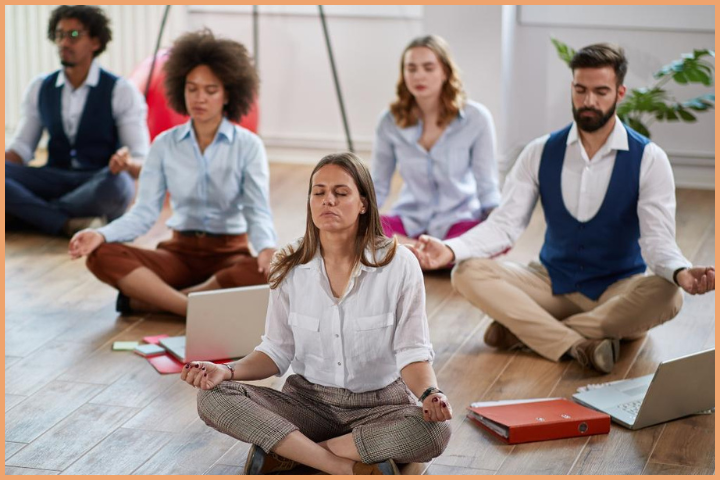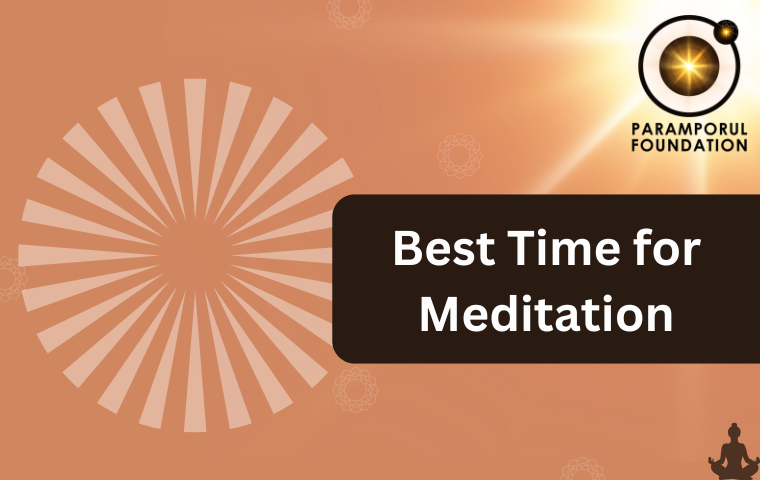Finding the best time for meditation can be a game-changer in your journey toward mindfulness and inner peace. Whether you’re a beginner or an experienced meditator, timing plays a crucial role in maximizing the benefits of Meditation. Meditation promotes a calm mind, reduces stress, and boosts focus, and selecting the right time to practice can amplify its benefits.
In this guide, we’ll explore the benefits of meditating at different times of the day and provide tips to help you establish a routine that aligns with your lifestyle. Let’s uncover the ideal meditation schedule to nurture both your mind and body.
Why Meditation Timing Matters

Finding time to meditate is essential for mental and emotional well-being. Our minds often wander, causing stress and unhappiness. Regular meditation helps reduce this mental clutter and brings clarity, focus, and calmness. Studies show that consistent meditation improves memory, reduces anxiety, and enhances sleep quality.
By choosing a time that works best for you, you can build a habit that benefits both your mind and body.
Best Time to Meditate
Finding the best time for meditation can significantly enhance your practice. Explore these options to see what works best for your schedule and lifestyle.
1. Morning Meditation

- Why it’s effective: Your mind is fresh, and the day’s distractions haven’t started.
- Benefits: Sets a calm tone for the day, boosts focus, and helps maintain a positive mindset.
- How to start: Try meditating before breakfast or right after waking up, even if it’s just for 5 minutes.
2. Midday Meditation

- Why it’s effective: A lunch break is a great time to recharge.
- Benefits: Reduces work stress, improves focus, and prepares you for the afternoon.
- How to start: Find a quiet spot at work or step outside for a short mindfulness session.
3. After Work Meditation
- Why it’s effective: It helps transition from work mode to relaxation.
- Benefits: Releases work-related tension and allows you to fully enjoy personal time.
- How to start: Spend 10 minutes meditating as soon as you get home.
4. Evening Meditation

- Why it’s effective: It helps unwind after a busy day.
- Benefits: Promotes relaxation and prepares the mind for restful sleep.
- How to start: Practice calming techniques like deep breathing or guided meditation before bed.
5. When Stressed or Overwhelmed
- Why it’s effective: Meditation can be a quick escape from stress.
- Benefits: Provides mental clarity and prevents reactive behavior.
- How to start: Pause, focus on your breath, and practice mindfulness for a few minutes anytime stress arises.
Tips for Making Meditation a Habit
- Start Small: Even 2–5 minutes of meditation can make a difference.
- Anchor Your Practice: Incorporate meditation into your daily routine, such as pairing it with brushing your teeth or having your morning coffee.
- Stay Consistent: Meditate at the same time every day to build a lasting habit.
- Be Flexible: Life can be unpredictable; it’s okay to adjust your schedule as needed.
- Use Guidance: Apps or guided meditations can help you stay on track.
Finding Your Perfect Meditation Time
The best time to meditate is when it fits into your life. In the morning, afternoon, or evening, consistency matters the most. Make meditation a daily habit to prioritize your mental well-being. Whether you’re starting with a short session or diving into longer practices, every moment you spend meditating brings you closer to a calmer, happier mind.
Make meditation your personal retreat, and enjoy the benefits of a peaceful and focused life.

